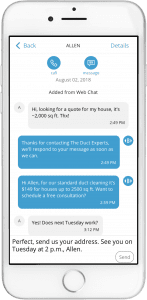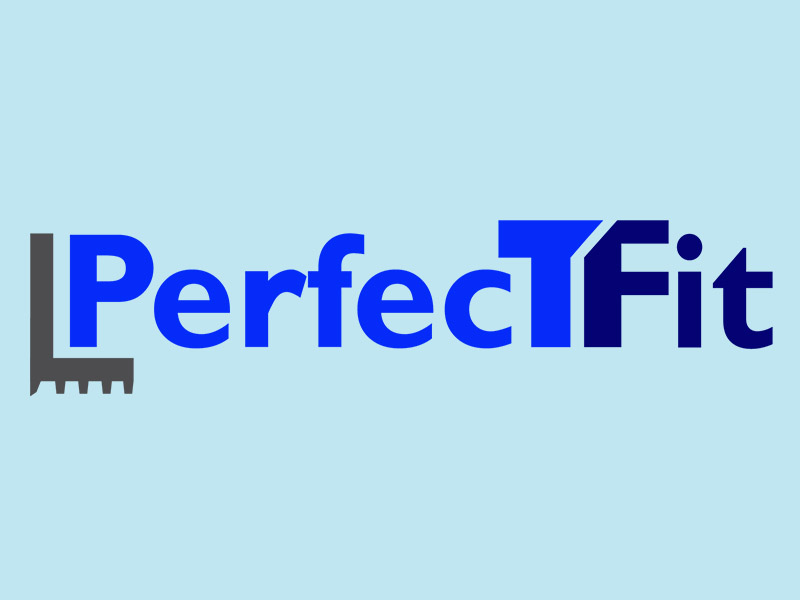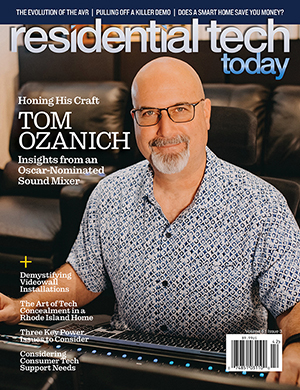Convenience and accessibility, those are two standards that Amazon has set for consumers. It’s this new expectation, that one could purchase anything they need from the comfort of their home, that is hurting retail. However, there is still a place for local business, especially when it comes to smart home integration.
Having those experts is vital for some consumers, however, the challenge lies in connecting the two parties. Enter Broadly, whose platform helps local businesses both stand out online and efficiently communicate with their customers. In this exclusive interview, Broadly CEO Josh Melick discusses the importance of online reviews, how businesses can better connect with customers, and the current state of retail.
Residential Tech Today: What is the focus of the Broadly platform?
Josh Melick: We like to say Broadly really focuses on two things. First is helping local businesses stand
The second thing is about getting a hold of those businesses and those consumers, helping them connect in that pool, like web chat, or mobile messaging apps, and all of that. Those two things are all about, first, get those reviews, because that’s how consumers are going to pick you today. And then, second, they need to get a hold of you to get an estimate or an appointment or whatever it is. That’s where chat messaging comes in.
Those are the two things that we do.
RT Today: Everything is about online reviews today. What specifically does Broadly do to help customers connect with local business owners?
JM: It really is a communication challenge. It’s all about how we work together and how we communicate. When you look at home services, or automotive services, or things like health care and legal, it really is a dialogue between these two parties – the dialogue between the consumers and the business.
Reviews are written by those consumers. Sometimes they do it just because, but more often than not, businesses need to encourage that type of stuff, as well as make sure that they’re aware of where they can do better, or how did everything go. It starts with communication and making sure you’re providing that great experience. That’s how you make online reviews happen for business.
RT Today: What inspired the creation of Broadly in those beginning days?
JM: The company has been around a little over four years. I grew up in home services. My dad was a contractor, so I spent my early days and my summers, and paid for college, working for my dad, working in and out of people’s homes, working with customers. So, I saw what it takes to do that, some of the challenges, and how to do that well. For my career, I found myself here in Silicon Valley, working around technology and building systems and those sorts of things.
With Broadly, I found the opportunity to marry the two of these. I thought there was a big market to help people like my dad, or just local business in general, with their communication challenges. Like, mobile, online reviews, social proof, and there has been so much change and disruption in that industry over the last decade. There was a real business opportunity, and so that’s where Broadly came about.
RT Today: How does Broadly assist these local business owners in keeping up with the likes of Amazon and these other retail giants?
JM: Amazon is really one of the original employers of online reviews – Ebay and Amazon. They’re the ones that have trained consumers, and we’re all consumers of Amazon today. We’ve all been trained in this world of, you look online, you read about it, you read about the product and you also read those reviews, or you read from other consumers like yourself. That means that local businesses need to operate inside of that environment.
If I’m going to read about products, I’m going to read on Amazon. If I’m going to read about a service provider, I’m going to read on other sites like Google or Facebook or Yelp, or even Amazon, too. But, I want that same experience. I want to be able to read about that business if I’m going to invite them into my home. It’s a very personal space, and I want to know who these people are, and I want to read about that and I want that social proof. That’s why we started and the first thing was to help these local business owners solve that, by helping them get reviews.
The second thing: Amazon makes it really easy. You click “buy” and the thing shows up. You click on your phone for Uber and something shows up. We want to be able to communicate with local businesses in similar fashion. It’s never going to be quite as simple, but the same concept applies.
I want things like chat. I want things like mobile. I want things like text messages, sending an email. These business owners need to operate across all these channels to make it easy, because if they don’t make it easy, consumers will do nothing more than just buy it on Amazon.
RT Today: In your opinion, what are the benefits of going to local businesses, specifically for smart home needs?
JM: Specifically in this market, let’s say I’m a homeowner. I’ve got some of this technology in my own home. A lot of times you want a local professional to help you put it all together. There’s individual products, but often the integration is challenging, or making it all work together. Or, maybe I’d rather sit on the couch with a beer and let someone else worry about installing it rather than doing it myself.
Depending on who you are, there is a bunch of needs here that you want. I don’t want to get stuck in configuration and all that type of stuff. But, again, it varies by a little bit of product.
Actually, we’re fortunate to be backed by some of the same investors that invested in Ring, which is now an Amazon product. So, we’ve worked around some of these same challenges of the importance of the home, the importance of technology in the home, but it’s also the importance of the service providers that are going to come into your home, that are going to help you with all of those products.
RT Today: How can local business owners better utilize tech and social media to make their operations more accessible and convenient for their customers?
JM: We have a line that we use around here a lot. It’s, “Hey, you might not be on Facebook, but your customers are.” Or, “Yeah, you might not do text messaging all the time, but your customers do.” Or, “You might not use this product, but your customers do.” Insert the verbs that you want to insert here. The concept is, as a local business owner, especially in a smart home space, if you’re going to be seen as an expert in this stuff, you better handle some of your stuff as well.
It starts with using good tools. Any modern transaction can happen across online, web, mobile, email, SMS. If a business owner doesn’t have tools that can help manage that communication, they’re going to get left behind.
RT Today: We are starting to see large retail stores (i.e., Toys R Us and Sears) going out of business. So, what does the climate look like for local business owners right now?
JM: I believe there’s always going to be a need for a local professional, a knowledgeable expert, when you need it. Yes, there are things that we like to do ourselves, but there’s always going to be a need for that local expert.
But, then the challenge for those guys is you need to make sure you do look like that local expert. If you look like a dinosaur, that’s not helping your case.
In many ways, actually, the death of retail could help these guys. I remember the days, back when I worked with my dad in home services, you could go to the lumber yard or the hardware store, and you could find knowledgeable help. They would tell you about things, or how to put things together. You think of Ace Hardware and places like that.
If you just buy it online, you’re missing that component. Yeah, you can read about it, but that’s a little bit different than having someone walk you through it. All the more reason that having local experts that you can call and use and utilize is important.
But, then it goes back to how those guys have to stand out and show up online and show that they are the experts. I see two business models here. One is being that real expert for that high end stuff – being the integrator, being the custom solution – and you have to prove it. You have to look good online.
And then there’s – call it the volume plan of leveraging – things like Amazon services, where you install lots of stuff. But, even then, they’re gonna look you up. In both cases, you have to look good. You have to prove your worth, and you gotta be efficient and leverage tools where necessary…
We don’t think the death of retail or some of these other things directly impact us. In fact, we think there’s advantages here. For businesses to succeed in this world, they need to be solving these problems. They need to be leveraging their phones. They need to be leveraging online. They need to be leveraging social proof. That’s what we’re trying to do.






![ecobee premium airzone control The ecobee Smart Thermostat Premium. [Photo credit | ecobee]](https://restechtoday.com/wp-content/uploads/2025/06/ecobee-premium.jpg)
![Hub 3_02 The SwitchBot Hub 3 provides a user-friendly solution to the growing complexity of modern smart homes. [Photo credit | SwitchBot]](https://restechtoday.com/wp-content/uploads/2025/06/Hub-3_02-scaled-e1750179791687.png)
